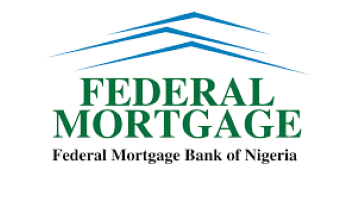Business
Federal Mortgage Bank of Nigeria has disbursed N440 billion and provided 39,000 homes since 1993-Shehu Osidi.

Federal Mortgage Bank of Nigeria has disbursed N440 billion and provided 39,000 homes since 1993-Shehu Osidi.
The dream of owning a home is a universal aspiration, one that resonates deeply within the hearts of many Nigerians. However, the journey to making that dream a reality has often been fraught with barriers—high interest rates, inadequate financing options, and an ever-growing demand for housing. Against this backdrop, the Federal Mortgage Bank of Nigeria (FMBN) has played a pivotal role in shaping the housing landscape in the country since its re-establishment in 1993. The recent revelations by the bank’s Managing Director and Chief Executive, Mr. Shehu Osidi, during the 18th Africa International Housing Show in Abuja shed light on the significant strides the institution has made over the years.
NewsReport Nigeria gathered that in his presentation titled “Financing the Housing We Need: A New Dawn at FMBN as an Institutional Enabler,” Osidi highlighted some remarkable achievements of the FMBN. Notably, the bank has disbursed a staggering N440 billion and delivered approximately 39,000 homes under the National Housing Fund (NHF) scheme, demonstrating its commitment to making housing more accessible for all Nigerians.
Milestones Achieved
The significance of the N440 billion disbursed cannot be overstated. This funding has facilitated the provision of around 25,500 mortgages and over 120,000 micro-housing loans, all under a single-digit interest rate lending regime. “Since its re-establishment in 1993, the Bank has delivered about 39,000 new homes,” Osidi stated. These statistics underline the essential role that FMBN plays in enhancing affordable housing finance for the Nigerian populace.
The bank’s efforts extend beyond just disbursement figures. Under the NHF scheme, FMBN has registered over 26,350 organizations and amassed more than 5.8 million cumulative contributors, signifying a robust support system for potential homeowners. Among these contributors, over one million are drawn from the self-employed sector, showcasing an inclusive approach that caters to a diverse demographic.
Additionally, Osidi provided insights into the bank’s compliance with the provisions of the National Housing Fund Act. FMBN has refunded N84.8 billion to 492,604 contributors who opted to exit the scheme, marking a significant step in upholding the rights of contributors and ensuring transparency within the institution.
Addressing Financial Missteps
In an impressive move that underscores FMBN’s commitment to integrity and effective governance, Osidi announced the recovery of N12 billion from the Federal Ministry of Finance. This recovery pertains to the N19 billion that was wrongfully deducted from NHF contributions, previously misclassified as revenue under a controversial 40% deduction regime. Osidi emphasized the ongoing engagement with relevant authorities to halt further wrongful deductions and recover the remaining trapped NHF funds, which reflects the bank’s dedication to safeguarding contributors’ assets.
Expanding the Product Portfolio
Another notable takeaway from Osidi’s presentation is the diversification of FMBN’s loan products. The bank has expanded its offerings beyond traditional mortgage financing to include housing construction loans, micro-housing financing, and innovative rent-to-own options. This diversification aims to cater to the emerging needs of the population, particularly targeting the informal sector through specific products like Home Improvement and Rent Assistance loans.
The bank’s strategic pivot in its product offerings caters to various segments of society, ensuring that housing finance becomes universally accessible. Osidi remarked, “The bank’s clientele now includes primary mortgage banks, real estate developers, housing cooperatives, and individual NHF contributors,” thereby positioning FMBN as a versatile player in the housing sector.
A Vision for the Future
In outlining the executive management’s seven-point agenda, Osidi painted a vivid picture of FMBN’s future trajectory. This agenda emphasizes improving automation, promoting cost efficiency, enhancing credit quality, ensuring effective project management, and expanding strategic partnerships. These measures are designed to transform FMBN into a more responsive and reliable institution capable of addressing the pressing housing needs of Nigeria.
Conclusion
The journey of the Federal Mortgage Bank of Nigeria since its re-establishment in 1993 has been nothing short of transformative. With the disbursement of N440 billion and the delivery of 39,000 homes, the bank has established itself as a cornerstone of the housing finance framework in Nigeria. Under the leadership of Mr. Shehu Osidi, FMBN appears poised to continue its vital role as an institutional enabler, driving forward the goal of affordable housing for all. As the bank evolves and expands its services, the realization of the dream of homeownership for many Nigerians becomes increasingly attainable.
The commitment of FMBN to recovery, efficiency, and innovation is encouraging and presents a beacon of hope for the future of housing in Nigeria. As we move towards a more inclusive and comprehensive housing market, such initiatives and leadership will undoubtedly pave the way for sustainable development in the Nigerian housing sector.
This blog post summarizes the Federal Mortgage Bank of Nigeria (FMBN)’s significant achievements, as presented by Mr. Shehu Osidi, while also discussing the underlying challenges and future outlook for housing finance in Nigeria.


